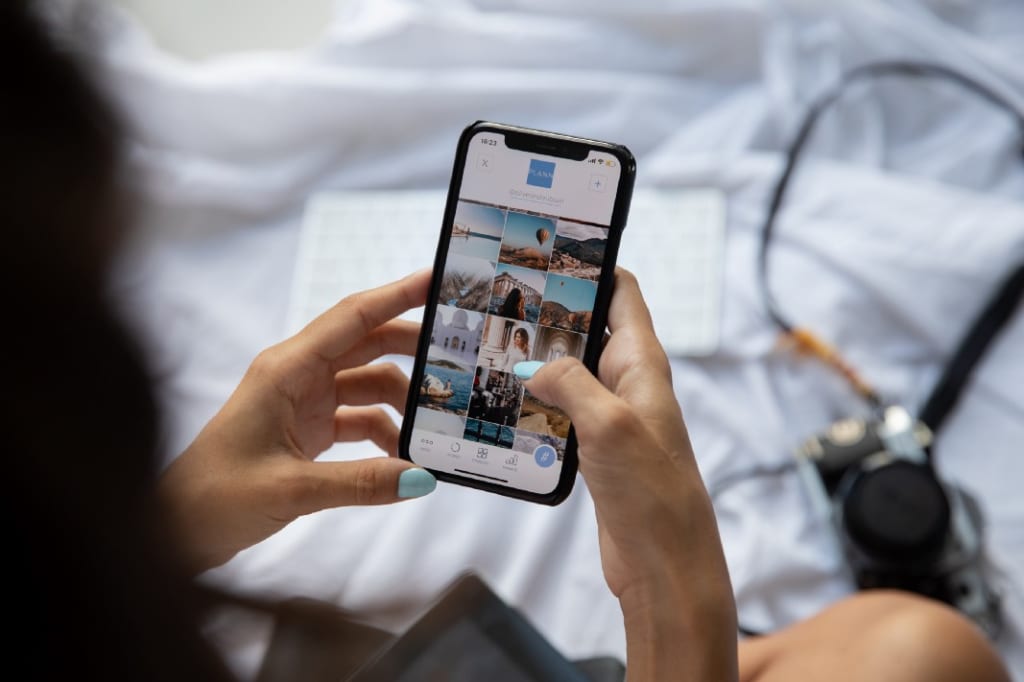We Need to Talk About Phubbing
The insidious behavior destroying our relationships

Garrison Keillor, host of A Prairie Home Companion, is well-known for his characterization of the mythical Minnesota town of Lake Wobegon where all the children are above average.
Along a similar but opposite vein, the majority of American smartphone owners believe their phone usage is below average, a statistical impossibility.
Crunching the Numbers
According to research published by global tech company Asurion in 2019, Americans check their phones an average of 96 times a day, or once every 10 minutes. Individuals from 18–24 years old check their phones twice as much as the national average.
Other survey findings reported that nearly 9 out of 10 Americans feel offended when someone they're speaking with starts checking their phone. But three-quarters of people admit to engaging in this behavior themselves.
Put Down Your Phone, Live Longer
Can phone usage impact longevity? By raising levels of the stress-related hormone cortisol, excessive phone usage may also threaten our long-term health.
A couple years ago, a piece in the New York Times described how constantly checking our phones leads to chronically elevated cortisol levels, which in turn impairs prefrontal cortex function, leading to risky, potentially life-threatening behaviors such as texting while driving.
Checking our phones before bed also impairs sleep, disrupting cortisol levels even further in a vicious cycle.
Put Down Your Phone, Improve Your Relationships
Unsurprisingly, phone etiquette has a big impact on the quality of your relationships. Nothing kills a conversation faster than the notification ding of a text message or a furtive glance at your phone. This behavior of checking our phones in the presence of others is known as "phubbing," or phone snubbing.

Kosta Kushlev, an assistant professor of psychology at Georgetown University, decided to study phone use in social situations because of his own bad habits. A 2017 study by his lab group showed that merely having phones in the nearby vicinity - even if not in active use - resulted in lower levels of social enjoyment than was the case when phones were not nearby.
Another 2018 study by Kushlev and colleagues used objective behavioral coding to discover that having smartphones on one's person resulted in fewer genuine Duchenne smiles. John Hunter, a PhD candidate in psychological science who worked with Kushlev, reiterates that even if your phone is not in use but still in front of you,
"that makes the conversation worse, because the other person kind of feels that, well, that phone in front of you is maybe more important to you than the conversation we're having,"
Phubbing also reduces relationship satisfaction when one member of a romantic couple uses their phone in the presence of the other. Damaging effects are also observed in parent-child relationships where parents who use their phones more often report depressed mood and feeling less sociable.
In the documentary Public Figure, psychologist Greg Kushnick describes how phubbing "is inhibiting people's ability to create a strong and powerful positive memory. Creating a good memory requires perspective. It requires being present in the moment." He elaborates,
When you're looking at your phone to check social media, to figure out what you're going to post, to take 27 selfies to try to get the right one, to be snapping 30 different angles of your salmon, is certainly ruining your experience of the moment. It's essentially ruining our ability to create memories that we hold onto.
Committing our full attention and energy to conversations at hand makes them more enjoyable and meaningful. Total immersion for the win. So this holiday season, ditch that digital brick for a bit and enjoy the company of your loved ones! And who knows? You might even extend your lifespan.
About the Creator
Nita Jain
Researcher, podcaster, scicommer | nitajain.substack.com







Comments
There are no comments for this story
Be the first to respond and start the conversation.